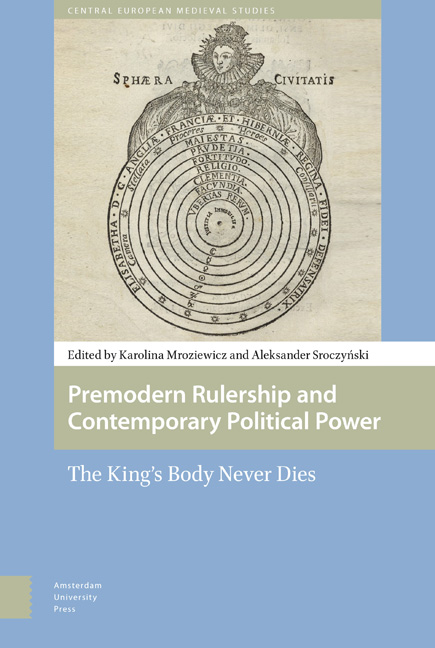The King’s Immature Body: Representations of Child Coronations in Poland, Hungary and Bohemia (1382-1530)
Published online by Cambridge University Press: 24 December 2020
Summary
Coronations were acts that sacralised royal power; they acknowledged the king's political, sacerdotal, military and juridical prerogatives which could, in effect, only be exercised by a mature individual. In these ceremonies the natural body of the king – young or old, strong or sickly – became unified with the everlasting body politic of his kingdom. The present study aims to address the question of whether the immature bodies of child kings posed any difficulty in this process of unification: how could the childish body of a king be made to fit into the perennial body politic?
Child coronations constitute an intriguing case study on strategies for strengthening political legitimacy during a crisis of succession. At such moments, when the decisive election of the monarch was essential, it became necessary to employ a rhetoric of heredity. This was especially true when the male lines of the domini naturales of Poland, Hungary and Bohemia became extinct, and the accession required additional sacred, genealogical, legal and political justification corresponding to the expectations of the estates. Yet in the Middle Ages and early modern period, children constituted a group whose agency was significantly limited. The laws transferred the responsibility for children's actions and properties to adults, and the church in turn did not give them access to all the sacraments. Their accession to the throne gave third parties, mainly regents, protectors, or members of the royal council who reigned on their behalf, opportunities to exercise significant power. Regency was therefore perceived as risky, especially during the times of the Ottoman threat and conflicts between magnate factions in Central Europe; it gave more influence on policy- and decision-making to the mightiest noblemen, who grew in power gradually and significantly from the late fourteenth century onwards in Poland, Hungary and Bohemia.
Nonetheless, two underage girls and five boys were successfully crowned kings and queens between the late fourteenth and early sixteenth centuries in Poland, Hungary and Bohemia. The individual coronations represent a diverse group of ceremonies of dissimilar meaning, different ceremonial content and divergent implications for political system.
- Type
- Chapter
- Information
- Premodern Rulership and Contemporary Political PowerThe King's Body Never Dies, pp. 139 - 168Publisher: Amsterdam University PressPrint publication year: 2017



